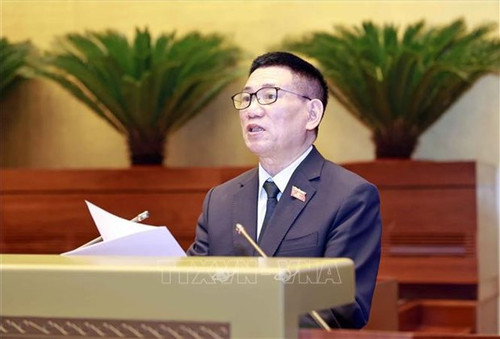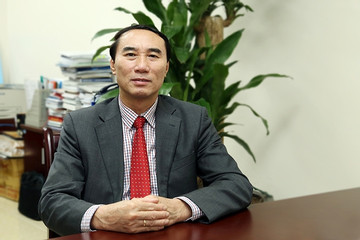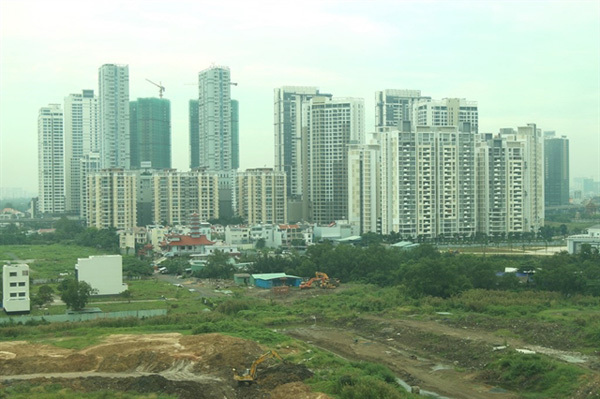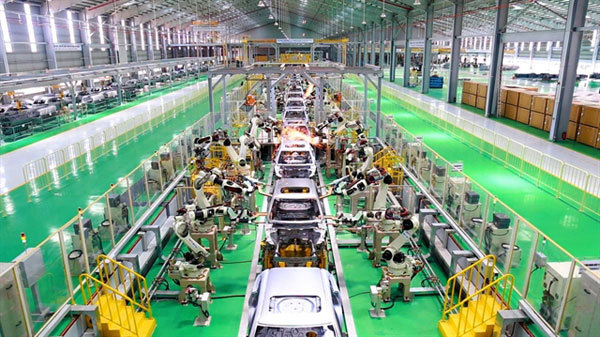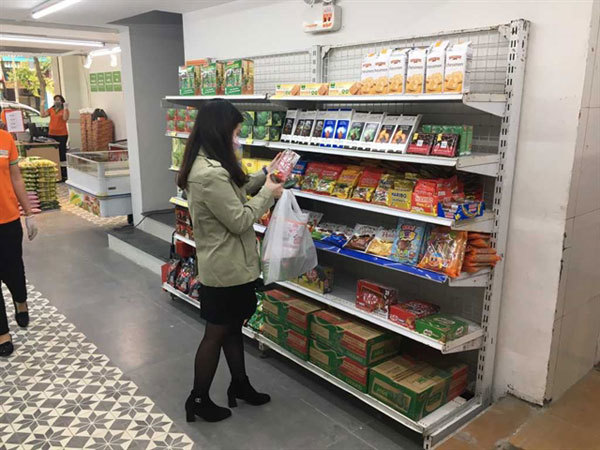- © Copyright of Vietnamnet Global.
- Tel: 024 3772 7988 Fax: (024) 37722734
- Email: [email protected]
tax policies
Update news tax policies
Legislators mull over 2% VAT reduction
Lawmakers discussed the reduction of value-added tax (VAT) during the 15th National Assembly (NA)’s ongoing sixth session in Hanoi on November 20.
Google, Facebook, Netflix to pay taxes in Vietnam via new platform
Since the issuance of Circular 80, large cross-border service providers such as Google, Facebook and Netflix have expressed their support and have said they are willing to pay taxes.
Tax policies for property sector must be carefully studied: finance ministry
Tax policies for the real estate sector must be carefully studied and introduced at the appropriate time to ensure feasibility and limit speculation, according to the Ministry of Finance.
No special treatment for support industries: Finance Ministry
 The Ministry of Finance (MoF) and the Ministry of Industry and Trade (MoIT) have failed to find common ground with regards to tax policies for Vietnam’s support industry enterprises.
The Ministry of Finance (MoF) and the Ministry of Industry and Trade (MoIT) have failed to find common ground with regards to tax policies for Vietnam’s support industry enterprises.
Firms demand tax incentives to fight economic downturn
 Capital city-based businesses on Thursday asked for specific tax policies from local authorities as they struggle with the economic downturn caused by COVID-19.
Capital city-based businesses on Thursday asked for specific tax policies from local authorities as they struggle with the economic downturn caused by COVID-19.
Tax policies still unapproachable to science-technology businesses in HCMC
 The HCMC Department of Science and Technology has lately launched various activities and policies to support companies to register for a science-technology business certificate to enjoy preferential conditions.
The HCMC Department of Science and Technology has lately launched various activities and policies to support companies to register for a science-technology business certificate to enjoy preferential conditions.
Vietnam to become South Korean car part production center
Vietnam’s policy on tightening control over import and decreased domestic consumption as well as exports in South Korea have prompted South Korean investors to set their car part production bases in Vietnam.
Ministries disagree on plan to raise taxes
The Ministry of Finance (MOF) has sent drafts of tax laws to the Ministry of Justice (MOJ) before being submitted to the Prime Minister and NA for approval in 2018.
Storm over special tax regime
VietNamNet Bridge – A special high tax proposed by some provinces and cities is being questioned by economists due to its controversial impacts on Viet Nam’s tax policies.
Temporary duties on fertiliser may hurt farmers
The imposition of temporary safeguard duties on DAP and MAP fertiliser imports into Vietnam, which came into effect on August 19, is an effort to help protect the domestic fertiliser industry but might push up production costs for farmers.
Is Vietnam the most attractive automobile market in ASEAN?
VietNamNet Bridge - The Vietnamese automobile market is much smaller than Thailand, the Philippines and Malaysia, but it is now one of the most attractive markets in the region.
Survey looks at alcohol consumption
At 43.8 per cent of the country’s adult population, general alcohol consumption rate of Vietnamese people is higher than some might expect.
Vietnamese turn their back on Chinese cars
VietNamNet Bridge - Vietnamese are turning their back on Chinese cars for several reasons, including low quality, design copies and vulnerability.
Are Vietnamese businesses burdened with high taxes?
VietNamNet Bridge - While some economists believe that Vietnamese businesses cannot grow because of heavy taxes, others believe that taxes should not be blamed.
SOE debts may be a threat to VN financial security
The government has denied that acting as a guarantor for enterprises to borrow capital would threaten the nation’s financial security, saying that the involved parties have to follow strict procedures to avoid risks.
MOF changes taxation method, raising concern about car price hike
VietNamNet Bridge - Car importers have unanimously opposed the Ministry of Finance’s (MOF) plan to apply a new luxury tax method.
What’s behind the high export figures?
VietNamNet Bridge - High export turnover and export growth rate are usually cited in government agencies’ reports as proof of economic development. However, there are many problems behind the figures.
Tax changes can boost enterprise health
VietNamNet Bridge – Preferential tax policies will help enterprises restore production rates, Bui Van Nam, the department's director general, tells Hai Quan Cuoi Tuan (Customs Weekend).
Feedback sought on tax exemption for fizzy drinks
VietNamNet Bridge – Viet Nam's policy-making bodies may reconsider a proposal to exempt non-alcoholic carbonated drinks from the list of products subject to an excise tax rate of 10 per cent.
Where will the German real estate tycoon invest in Vietnam?
Vietnamese real estate developers now keep curious about what the German real estate tycoon Thomas Kramer looks for in Vietnam and where he would put his money into.
